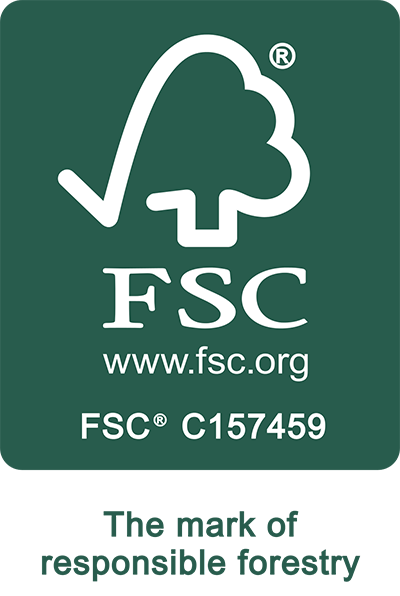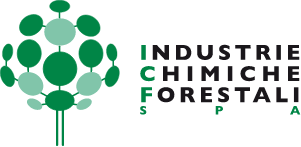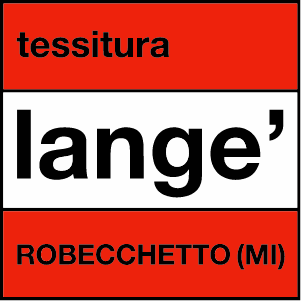Product Certifications
With a view to developing innovative products with low environmental impact, ICF in 2019 has developed a series of new products – toe-puffs, counters, reinforces extruded and impregnated – that have been certified GRS, FSC®, OK-Biobased, OEKO-TEX Standard 100 and Global Organic Textile Standard (GOTS).
GRS Certification
The “Global Recycle Standard” (GRS) certification meets the need to provide a third party verified environmental statement that proves:
- the recycling content of their products (both intermediate and finished)
- compliance with environmental and social criteria.
All products that are composed of at least 20% recycled materials can be certified according to the GRS standard.
FSC® Certification

The FOREST STEWARDSHIP COUNCIL® (FSC®) certification is designed to ensure that the FSC® labelled product comes from a responsibly managed forest and supply chain.
Chain of Custody FSC® Certification (Chain of Custody, CoC) ensures the traceability of materials from FSC® certified forests and is indispensable for the application of FSC® labels on products.
Request our FSC® certified products.
OK-Biobased Certification
The “OK biobased” certification is an independent and high-quality guarantee of the renewability of the raw materials used in the manufacture of a product.
Based on the percentage of determined renewable raw materials (%bio-based), the product can be certified as a one-star-bio-based, two-star-bio-based, three-star-bio-based (60%-80% biobased) or four-star-bio-based (>80% biobased).
- FOREBIO PRIME 50/LL Certificate ( 1.13 MB )
- FOREBIO PRIME 70/LL Certificate ( 1.13 MB )
- FOREBIO PRIME 90/LL Certificate ( 1.13 MB )
- FOREBIO PRIME 100/LL Certificate ( 1.13 MB )
- FOREBIO PRIME 120/LL Certificate ( 1.13 MB )
OEKO-TEX Standard 100
The STANDARD 100 certification by OEKO-TEX® guarantees that textile products and their accessories do not contain or release substances dangerous to human health, above the limits set in the Standard.
The presence and/or release of harmful substances (pesticides, heavy metals, carcinogenic aromatic amines, formaldehyde, allergenic dyes, polycyclic aromatic hydrocarbons, VOCs, etc…) are checked by independent laboratories in raw, semi-finished and finished textile products.
LCA Study
An LCA (Life Cycle Assessment) study was carried out on the Fabrics line, which defines the consumption of resources (materials, water, energy) and the impacts on the surrounding environment in the various phases of the product life cycle. The minimum stages that have been considered range from the extraction of raw materials, their transport to the production site and the production itself (it is said “from the cradle to the gate”).
The results are presented in synthetic form through the use of a series of environmental indicators, such as the amount of carbon dioxide emitted or GWP (Global Warming Potential) per declared unit of product (e.g. per tonne), Equivalent Water Consumption, eutrophication, acidification, stratospheric ozone, photochemical oxidation.
On the basis of the LCA study carried out, the Environmental Product Declaration (EPD) is being certified, which is a certified environmental product declaration, providing life cycle environmental data (LCA) products in accordance with the international standard ISO 14025. In particular, it describes the environmental impacts related to the production of a specific quantity of product: for example, energy consumption and raw materials, waste production, emissions into the atmosphere and discharges into water bodies. The EPD® declaration, on a voluntary basis, has been prepared by reference to the LCA (Life Cycle Assessment) study carried out by us on the Fabrics line.
Global Organic Textile Standard (GOTS)
The Global Organic Textile Standard (GOTS) is a certification promoted by leading international organizations in organic farming, in order to ensure responsible and sustainable development in the textile industry.
GOTS provides for the issuance of an environmental declaration certified by independent third parties, which certifies the suitability of the product production and packaging process, limiting the use of chemicals, respecting environmental criteria and the fundamental social rights of workers at all stages of the production chain. The GOTS certification implies strict ecological and social constraints, therefore defining organic tissues as materials with a minimum percentage of organic fibers (at least 70%) obtained from suitable working conditions, with minimal impact on the environment and subjected to strict checks on natural and synthetic chemicals.





